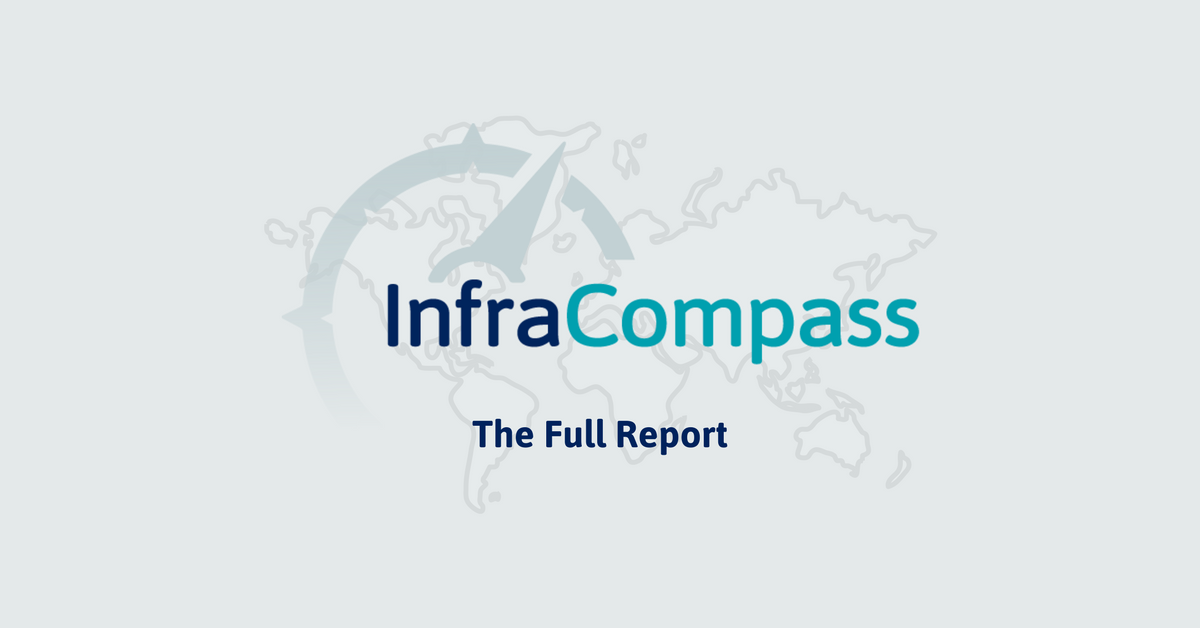1740 results found
Featured results



More results
Sam Barr outlines several opportunities for decisionmakers at COP28 to commit to delivering infrastructure for social equity.
Modules 1-4 (out of nine modules) of the PPP Manual systematically guide public and private parties through the phases of PPP project preparation for national and provincial governments.

This publication outlines the rationale, the characteristics, and a plan for the implementation, monitoring and evaluation of the African Development Bank's guidelines for the aviation sector.

The goal of this paper is to estimate the additional annual spending required for meaningful progress on the SDGs in these areas. Our estimates refer to additional spending in 2030, relative to a baseline of current spending to GDP in these sectors.

The FCCL Framework was prepared in assistance with the World Bank under the IFPPP project and it comprises FCCL guidelines and the FCCL technical manual.

This brief explores how to ensure that today's mobility needs are not met at the expense of future generations

France's infrastructure procurement processes rank among the best in the world. In combination with strong financial markets and a regulatory framework that supports the creation of new businesses, this promotes competition among providers and helps bring better value for money and higher quality outcomes from investment.

Ferry services in Sydney, Australia provide a vital public transport service. The NSW Government franchised the operations of the Sydney ferry services under a seven-year franchising agreement.
This paper, prepared as background material for the Lifelines report on infrastructure resilience, summarizes the main findings on the risk faced by transport networks and users as a result of natural disasters and climate change, and the main recommendations for building more resilient transport networks.

This paper investigates the emerging global landscape for public-private co-investments in infrastructure.

The first meeting under the Indian G20 Presidency of the G20 Finance Ministers and Central Bank Governors in Bengaluru, India was a productive meeting, despite the ongoing problems evident on the global stage. Our CEO Marie Lam-Frendo discusses the outcomes.
Despite the turmoil in the banking sector, now is not the time to become more risk averse about investing in infrastructure.
With infrastructure responsible for 79% of global GHGs, JETPs have great potential to rebuild trust among stakeholders and help mobilise private climate finance to support the climate transition and sustainable infrastructure development broadly. The JETP platform offers a valuable sandbox to co-create and validate new approaches and innovations while firming up political will
At last week’s meetings of the G20 Finance Ministers in Washington DC in the margins of the World Bank / IMF Spring Meetings, conversations continued to drive toward action on debt, reform of multilateral institutions, and sustainable finance and investment for the climate transition.
The paper looks at the potential and preconditions for introducing or expanding competition for the provision of municipal waste management services by mobilising and engaging the private sector.


InfraCompass is a tool for infrastructure policymakers. It objectively quantifies the strength of the infrastructure enabling environment by aggregating data for 81 countries, collectively representing 93% of global GDP and 86% of the world population.



Fiscal prudence and GDP growth have allowed Greece to improve government debt to sustainable levels, with credit agencies upgrading the country’s outlook.



A collection of resources to provide solutions and case studies of effective funding and financing approaches.



This resource and its hundreds of case studies give project proponents a catalogue of proven mechanisms to fund and finance infrastructure.








 First FMCBG Meeting, 22-25 February 2023, G20 Chair's Summary
First FMCBG Meeting, 22-25 February 2023, G20 Chair's Summary



